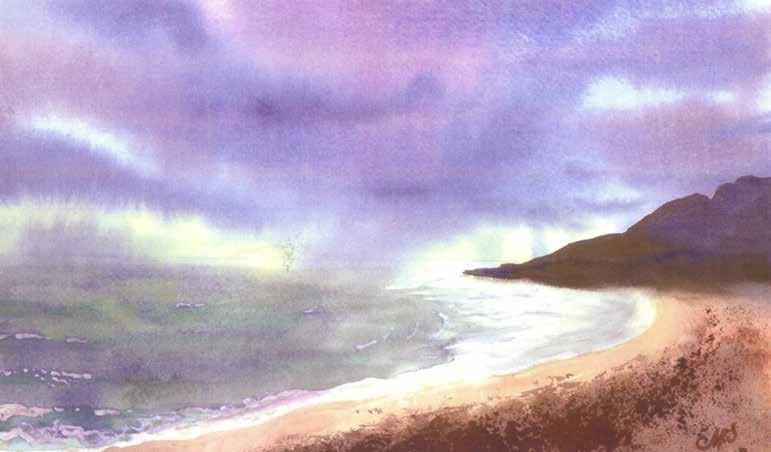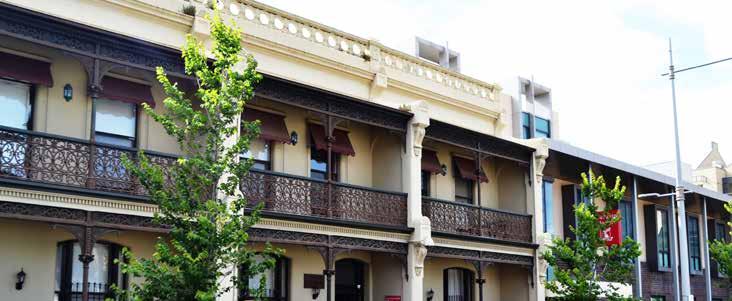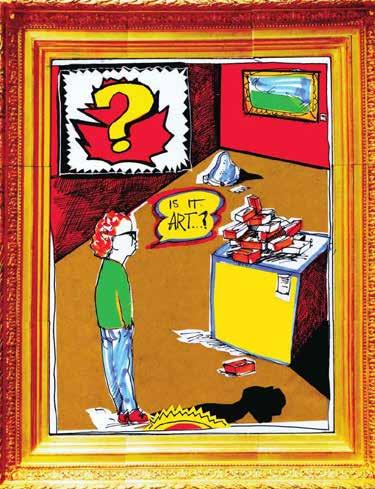
56 minute read
May
WHAT’S ON
Tuesday, 4th, 18th May 6:00pm – 8:30pm
Advertisement
Dine while learning to speak Italian with an experienced teacher. Members $17, non-members $25.
MONTHLY LUNCHEON
Wednesday, 5th May 12:00pm for 12:30pm start
with Rhonda Boyle. Dine in: Members $35, non-members $40. Virtual attendance: Members $10, non-members $15.
BRIDGE NIGHT
Wednesday, 5th, 12th, 19th, 26th May 7:30pm – 9:30pm
Do you enjoy a sociable game of duplicate bridge? Register at reception. All levels of bridge players welcome. Player fees: Members $2, non-members $5. Food and beverages at bar prices.
RAMADAN IFTAR DINNER
Friday, 7th May 6:00pm – 7:30pm
Resident Members free, Members $17, Loyalty Card Holders $20, non-members $25.
SPECIAL MORNING BREAKFAST
Tuesday, 11th May 7:30am - 8:30am
Non-resident Members are welcome to join Resident Members for a hearty breakfast at Graduate House. Free for Resident Members, Non-resident Members $20.
COLLEGE TABLE
Friday, 14th May 12:00pm for 12:30pm start
with Jesse Moors Dine in: Members $12, non-members $20, Loyalty Card Holders $15. Virtual attendance: Members $10, non-members $15.
WOMEN’S FORUM
Wednesday, 19th May 10:00am for 10:30am start
with the topic ‘Should the thousands of undocumented migrants living in our communities be given the opportunity to take steps towards citizenship’ The Forum is free. All are welcome. Lunch is at Member and non-member prices.
ANNUAL GENERAL MEETING AND DINNER
Thursday, 27th May
Annual General Meeting: 5:30pm Members only @ Graduate House or online Dinner: Members and non-members (7:00pm Canapés and drinks, 7:30pm Dinner) with guest speaker Mr Peter McMullin: lawyer, businessman and philanthropist. More details on page 37.
CONTENTS
INTERNATIONAL DAYS 4 May
FEATURES 10 Grace Taylor and Susan Oliver AM, FAICD — A Tale of Two Generations 16 Dr Ian Walker, ‘Toad’ of Toad Hall — Graduate Pathway Story
REVIEW 22 April Monthly Luncheon – Jill Walsh 24 April College Table – Lyn Yeowart MEMBERS’ CONTRIBUTION 27 A Pilgrim’s Questions by Life Member, Mac Nicoll 28 Art for art’s sake, money for God’s sake by Member, Geoff Todd AM 30 The Paintings of Marg Nicoll
GRADUATE HOUSE NEWS 31 Seen at Graduate House 32 Graduate House Outdoor Dining 33 Play for Purpose 33 Bel Woodruff Exhibition
COLLEGIATE 34 May Monthly Luncheon – Rhonda Boyle 35 May College Table – Jesse Moors 36 Ramadan Iftar Dinner 37 Annual General Meeting Dinner
PROMOTIONS 38 Graduate House – Affordable and safe accommodation for patients, hospital visitors and medical staff 40 Graduate House is Open and Safe — Meet Face-to-Face! 41 Graduate House Dine-in and Takeaway 42 Office Rentals 43 Room Types, Prices and Features 44 Influenza Vaccination is available at Melbourne Town Hall 44 Community of Convocation, thank you 45 Australian Academy of Technology and Engineering Commercialisation of Biological Science FIRST NATIONS 46 Kimberley bone tools used 46,000 years ago
INTERNATIONAL
DAYS MAY
2nd May – World Tuna Day Tuna includes approximately 40 species in the Atlantic, Indian and Pacific Oceans and in the Mediterranean Sea. The meat of these warm-blooded fish is rich in Omega-3 and contains minerals, proteins and vitamin B12. Tasty and healthy tuna are thus threatened by an overwhelming demand. World Tuna Day is to underline the importance of conservation management to ensure that we have systems in place to prevent tuna stocks from crashing. Many countries depend heavily on tuna resources for food security and nutrition, economic development, employment, government revenue, livelihoods, culture and recreation. Of particular relevance on this day is Sustainable Development Goal 14 and the tasks to conserve and sustainably use the oceans, seas and marine resources.
3rd May – World Press Freedom Day The anniversary of the Declaration of Windhoek is celebrated annually and worldwide as World Press Freedom Day. This Day is for governments to continue their commitment to press freedom, to reflect on issues of press freedom and professional ethics, to defend the media from attacks on their independence and to pay tribute to journalists who have lost their lives in the line of duty. Freedom of speech is recognised as an aspiration of common people in the Universal Declaration of Human Rights. The host of the 2021 World Press Freedom Day is Namibia, the birthplace of the Windhoek Declaration 30 years ago on 3rd May 1991.
5th May – International Midwives’ Day A midwife is a health professional trained to support and care for women during pregnancy, labour and birth. They help pregnant women to stay healthy (prenatal care), assist the birth, and care for mother and baby in the first few weeks following birth (postnatal care). Midwives operate in hospital maternity units, birth centres, consulting rooms, midwifery group practices, community health centres and in private homes. First celebrated in 1991, International Day of the Midwives originated from the 1987 International Confederation of Midwives conference.
8th May – World Red Cross and Red Crescent Day The red cross emblem was adopted 150 years ago by the Geneva Conventions to protect medical personnel assisting the wounded on the battlefield. Soon after, it was to identify the humanitarian

services of Red Cross societies around the world. Today, it is one of the most recognised symbols in the world. It means “don’t shoot” because this person, vehicle, building or equipment is providing voluntary, neutral and impartial assistance to people in need — regardless of race, religion or citizenship status — because of disaster, health emergency and/or armed conflict. The International Red Cross and Red Crescent Movement is a global humanitarian network of 80 million people, the International Committee of the Red Cross, the International Federation of Red Cross and Red Crescent Societies and 191 National Red Cross and Red Crescent Societies. World Red Cross Day marks the birthday of Henry Dunant, the founder of the Red Cross, born in Geneva in 1828, and recipient of the first Nobel Peace Prize.
8th and 9th May – Time of Remembrance and Reconciliation for Those Who Lost Their Lives During the Second World War World War Two (WWII) was from 1st September 1939 to 2nd September 1945 and involved the Axis powers — Germany, Italy and Japan — and the Allies — France, Great Britain, the United States, the Soviet Union and, to a lesser extent, China, as well as all signatories to the Declaration of the United Nations, including Australia and New Zealand. This war brought untold sorrow to humankind, particularly in Europe, Asia, Africa and the Pacific. An epic struggle for freedom and liberation, 40 million civilians and 20 million soldiers died. WWII was marked by fascism, tyranny, the Holocaust and other grave and horrendous crimes committed by the Nazis. Victory in May 1945 marked the beginning of a new era. These two days called Time of Remembrance and Reconciliation for Those Who Lost Their Lives During the Second World War are to overcome the legacy of WWII and to continue the international focus on reconciliation, international and regional cooperation and democratic values, human rights and fundamental freedoms, particularly through the United Nations.
8th May – World Migratory Bird Day The first World Migratory Bird Day in 2006 was to counter some of the negative publicity migratory birds were receiving at the peak of the Avian Influenza discussion. Themes in subsequent years included:
• the plight of migratory birds due to global warming (2007); • migratory birds as messengers for the conservation of biodiversity worldwide (2008); • the threat of man-made barriers/obstacles (e.g., wind turbines, power lines, tall buildings) to migratory birds (2009); • critically endangered migratory birds (2010); • the effect of land use change (e.g., natural areas into agricultural land; construction of buildings, roads and dams; deforestation) on migratory bird populations (2011); • cultural relationships between birds and people (2012); • networking for migratory birds (2013); • migratory birds and tourism (2014); • making energy bird-friendly (2015); • illegal killing, taking and trade of migratory birds (2016); • birds conservation is crucial for the future of humankind (2017); • major migratory bird corridors (African-
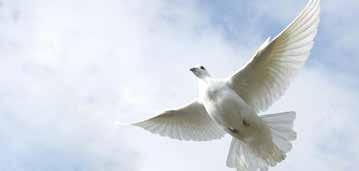
Eurasian, the East Asian-Australasian,
Americas) (2018); • protect birds by removing and preventing plastic pollution (2019); and • birds connect our world (2020).
15th May – International Day of Families The International Day of Families is to increase knowledge of the social, economic and demographic processes affecting families. Recognised as the basic unit of society, the United Nations acknowledges how families have changed over time, both in structure and due to global socioeconomic trends, and that families and family-oriented policies and programmes are vital for the achievement of many of the Sustainable Development Goals, a set of 17 goals aiming to eliminate poverty, discrimination, abuse and preventable deaths, address environmental destruction, and usher in an era of development for all people, everywhere. As outlined by Relationships Australia, a family can be made up of anyone a person considers to be their family. A family shares emotional bonds, common values, goals and responsibilities. Family members contribute significantly to the wellbeing of each other, and when a family includes children, one or more adults may take on an involved role in the child’s life and become a parent or carer. Parents and carers may not necessarily be biologically related to the child or even live with the child all the time. A child may have one or several parents or carers. In addition to their biological parents, this could include grandparents, step-parents, aunts and uncles, foster parents, adoptive parents, and any other person who fulfils a significant portion of the parenting and caregiving for the child. 16th May – International Day of Living Together in Peace Following the devastation of the Second World War, the United Nations was established to save succeeding generations from the scourge of war, and to achieve international cooperation in solving international problems, including by promoting and encouraging respect for human rights and for fundamental freedoms for all. In 1999, the UN adopted the Declaration and Programme of Action on a Culture of Peace to guide the international community in promoting a culture of peace and non-violence that benefits all of humanity. It embraces the principle that peace is not just an absence of conflict. Peace requires a positive, dynamic participatory process, in which dialogue is encouraged and conflicts are resolved with mutual understanding and cooperation. The International Day of Living Together in Peace is to fulfil this aspiration of eliminating all forms of discrimination and intolerance, including those based on race, colour, sex, language, religion, political or other opinion, national, ethnic or social origin, property, disability, birth or other status.
16th May – International Day of Light The International Day of Light celebrates the role light plays in science, culture and art, education and sustainable development, as well as in such fields as medicine, communications and energy. It is to enable these different sectors of society globally to participate in integrated activities that help to build the foundations for peaceful societies. The Day is on the anniversary of the first successful operation of the laser in 1960 by physicist and engineer, Theodore Maiman. This laser comprised a small synthetic rod with silvered



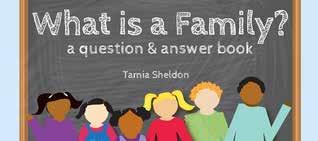
ends producing a narrow beam of monochromatic light with a wavelength of approximately 694 nanometres. Some ideas for sharing an image (#SeeTheLight) that captures how light influences our lives include:
• how the science or technology of light improves our lives; • a natural phenomenon related to light or colour; • how light is used in art or culture; • working with or just enjoying light; • a photonics laboratory experiment; • a favourite book about light; • a favourite astronomical object or astrophotography; and • use of optics in education.
17th May – World Telecommunication and Information Society Day Also known as World Information Society Day, this Day highlights the possibilities that the Internet and other information and communication technology (ICT) can bring to societies and economies, as well as ways of bridging the digital divide. It marks the anniversary of the signing of the first International Telegraph Convention and the creation of the International Telecommunications Union (originally known as the International Telegraph Union and established in 1865). 20th May – World Bee Day World Bee Day seeks to lift awareness of the importance of pollinators. Increasingly under threat from human activity, bees contribute significantly to sustainable development, food security and to conserving biodiversity. The date coincides with the birthday of Anton Janša (1734–1773) who pioneered modern beekeeping techniques in Slovenia.
21st May – International Tea Day Tea is a beverage made from the Camellia sinesis plant, and is the world’s most consumed drink, after water. Originating from northeast India, north Myanmar and southwest China, there is evidence of tea being consumed in China 5,000 years ago. Tea production and processing are major livelihood sources for millions of families in developing countries. Tea can play a significant role in rural development, poverty reduction and food security in developing countries. The beverage is also associated with having anti-inflammatory, antioxidant and weight loss health benefits and of cultural significance in many societies. Established in 2020, International Tea Day is to promote and foster collective actions to implement activities in favour of the sustainable production and consumption of tea and raise awareness of its importance in fighting hunger and poverty. Highly sensitive to changes in growing conditions, tea is only produced under narrowly defined agroecological conditions in a very limited number of countries, many of which are heavily impacted by climate change. Changes in temperature and rainfall patterns, with more floods and droughts, affect yields, tea product quality and prices, lowering incomes and threatening rural livelihoods.


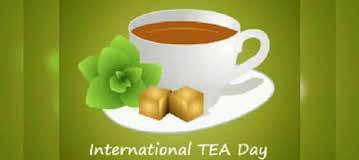
21st May – World Day for Cultural Diversity for Dialogue and Development The Universal Declaration on Cultural Diversity was adopted in 2001 by UNESCO and in 2002 the World Day for Cultural Diversity for Dialogue and Development was established to affirm culture’s contribution to the three dimensions of sustainable development, acknowledge further the natural and cultural diversity of the world, and recognise that cultures and civilisations can contribute to, and are crucial enablers of, sustainable development. The Day is also to advance the four goals of the 2005-adopted UNESCO Convention on the Protection and Promotion of the Diversity of Cultural Expressions of:
• supporting sustainable systems of governance for culture; • achieving a balanced flow of cultural goods and services and increased mobility of artists and cultural professionals; • integrating culture in sustainable development frameworks; and • promoting human rights and fundamental freedoms.
22nd May – International Day for Biological Diversity Biological diversity refers to the wide variety of plants, animals and microorganisms, the genetic differences within each species, and the variety of ecosystems (lakes, forest, deserts, agricultural landscapes) that host multiple kinds of interactions among their members (humans, plants, animals). The International Day for Biological Diversity was established in 2000 in recognition of the Convention on Biological Diversity — ratified by 196 nations — which documents the importance of conservation of biological diversity, the sustainable use of its components and the fair and equitable sharing of the benefits arising out of the utilisation of genetic resources. Each of the conditions necessary to achieve the 2050 Vision for Biodiversity requires transformative change in each of the following sectors:
• Land and Forests; • Freshwater; • Fisheries and
Oceans; • Sustainable
Agriculture; • Food Systems; • Cities and
Infrastructure; • Climate Action; and
• One Health. 23rd May – International Day to End Obstetric Fistula According to the World Health Organization (WHO), 50,000 to 100,000 women worldwide are affected by obstetric fistula annually. Obstetric fistula, an abnormal opening between a woman’s genital tract and her urinary tract or rectum, results in constant incontinence, shame, social segregation and health problems. More than 2 million young women live with untreated obstetric fistula in Asia and subSaharan Africa. This condition can largely be avoided and prevented by: • delaying the age of first pregnancy; • ceasing harmful traditional practices; and • having timely access to obstetric care.
International Day to End Obstetric Fistula is to raise awareness and intensify actions towards ending obstetric fistula, as well as urging post-surgery followup and tracking of fistula patients.
26th May – Day of Vesak The Day of the Full Moon in May, Vesak is a sacred day for Buddhists as it is the birth date in the year 623 BC of Buddha, as well as the day that Buddha attained enlightenment and the day of his death at age 18. Day of Vesak is to acknowledge the contribution of Buddhism to the spirituality of humanity through the teachings of Buddha on compassion, peace and goodwill — philosophies that lie at the heart of the Charter of the United Nations. Celebrate Lord Buddha’s wisdom by taking action for others with compassion and solidarity, and by renewing your commitment to a peaceful world.
29th May – International Day of UN Peacekeepers The International Day of United Nations Peacekeepers is to pay tribute to the uniformed and civilian personnel’s contribution to the work of the United Nations (UN) and to honour more than 3,900 peacekeepers who have lost their lives serving under the UN flag since 1948. The first UN peacekeeping mission was established on 29th May 1948, when the Security Council authorised the deployment of a small number of UN military observers to the Middle East to form the United Nations Truce Supervision Organization (UNTSO) to monitor the Armistice Agreement between Israel and its Arab neighbours. Since then, more than 1 million women and men have served in 72 UN peacekeeping operations, directly impacting the lives of millions of people and saving countless lives. Today, UN Peacekeeping deploys more than 95,000 military, police and civilian personnel in 13 operations.
31st May – World No Tobacco Day Tobacco leaves are dried and fermented before being put in tobacco products. Tobacco contains nicotine, an ingredient that can lead to addiction. Tobacco products additionally contain harmful chemicals. Tobacco smoking can lead to lung cancer, chronic bronchitis and emphysema; and increases the risk of heart disease, heart attacks and stroke. Smoking is also linked to other cancers, leukemia, cataracts, type 2 diabetes and pneumonia. Pregnant women who smoke cigarettes run an increased risk of miscarriage, stillborn or premature infants, or infants with low birth weight. Smoking while pregnant may also be associated with learning and behavioural problems in exposed children. Established in 1987, World No Tobacco Day is to inform the dangers of using tobacco, the business practices of tobacco companies, what the World Health Organization (WHO) is doing to fight the tobacco epidemic, and what can be done to claim their right to health and healthy living and to protect future generations. It is a world no-smoking day and thus a good day to quit!
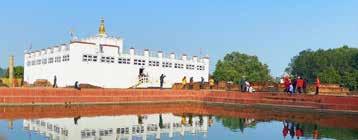
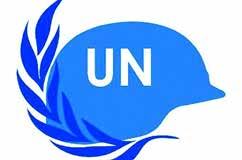
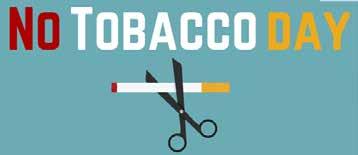
Susan Oliver AM, FAICD (left) and Grace Taylor are an inspiring and dynamic daughter and mother duo. We spoke to Grace and Susan recently via an email interview.
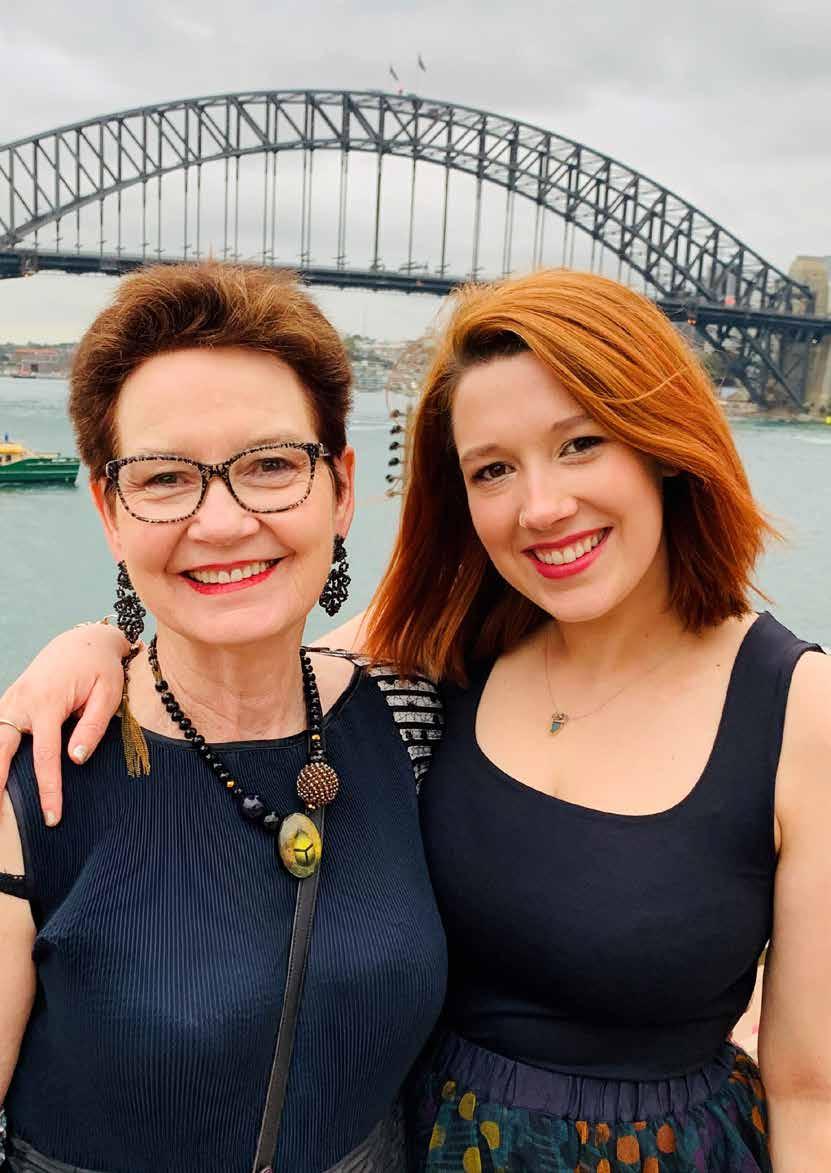
Grace Taylor and Susan Oliver AM,
FAICD — A Tale of Two Generations
Vital Stats: Name/Qualifications/Current Profession
Grace Taylor:
• Bachelor of Arts, The University of
Melbourne
• Masters of Creative Practices and Directing,
Guildford School of Acting (UK) • Current Profession: theatre director
Susan Oliver AM, FAICD: • Bachelor of Property and Construction,
The University of Melbourne • Current Profession: company chair, angel investor (Wikipedia definition: “An angel investor is an individual who provides capital for a business start-up, usually in exchange for convertible debt or ownership equity.
Angel investors usually give support to startups at the initial moments and when most investors are not prepared to back them.”) and entrepreneur
What was your educational background? What did you study at university and why did you choose this course?
Grace: I did a Bachelor of Arts at The University of Melbourne, with a major in creative writing and a minor in cinema and cultural studies. I chose this course because I was interested in working in the arts and in theatre, and wanted to explore theory and have access to amazing resources. I also chose The University of Melbourne because of the amazing Global Mobility program, which saw me studying for a semester at Queen’s University in Canada, and for the incredible student theatre. I then went on to do a Masters at Guildford School of Acting (GSA), a drama school outside of London. This was to allow me access to resources provided by drama schools and to allow me to make connections within the theatre industry in the UK.
Susan: I studied what was known as the Building degree starting in 1969. I was the first female to commence and complete the course. I chose it because I was very interested in physics and the built environment although my first choice was mining engineering. However, when I interviewed for scholarships for that area of study, I was told I would never be employed because I was female, whereas when I approached the professor for the Building course,
Professor Leo Simon, he offered me a job in his construction company, L.U. Simon Builders Pty Ltd.
What did you learn during your tertiary education – not just academically, but what ideas did you form and what perceptions? Did any of your views change significantly when you went to university?
Grace: I learnt about learning. That was my biggest tool. I learnt that you weren’t going to be spoon fed your knowledge, like at school, and so you had to seek the knowledge yourself. I also learnt how to manage my time effectively, something that I’ve definitely used as someone who is self-employed. Susan: I was very well prepared for self-learning at university as I came from a country high school where we did not have teachers in final year for most of my selected subjects in maths and science, so we taught ourselves. I remain indebted to those students repeating Year 6 in order to improve their access to tertiary studies, who basically got us through with bare minimum marks. I probably had the lowest entry score to Melbourne Uni – but was at the top of my class in my final year of my university course. I benefited most from participation in several ways in the Architects Review, from the friendships and networks into Melbourne which, as a country student, I needed to create and for the exposure to political thought and new ideas.
What is your earliest memory of having an interest in your field?
Grace: My mum will always tell this story! But I’m going to beat her to it. When I was 5 years old, I turned to my parents and said, “It’s time for me to start ballet.” There had been, at the time, no professional performing artists in my family (my brother is now a professional musician and my grandfather was heavily involved in amateur musical theatre) and my mum was always into sport when she was younger. So this seemed quite left field. But I was adamant that I wanted to be a dancer. I did extra-curricular dance right up until my third year at The University of Melbourne. And then it was at Melbourne Uni that I got to assistant direct my first production (Trinity College’s production of Grease). From there, I knew that I wanted to be a creative, working offstage. Susan: I was a creative person and was good at art and maths, so I assumed that logically made me a candidate for architecture. However, a fascinating presentation at my school by a medical professor, a shortlisted entry into the Science Talent Quest at school, a fascination for rocks and geology and a passion for sport opened my eyes to the fact I was never going to specialise and needed a career that gave me that broad brush of options.
What has been your pathway since graduating? What was your first job after graduation and how did that job prepare you for your later positions? Any lessons learnt?
Grace: Since leaving GSA, I have used the connections I made there to get myself professional assisting roles with more established directors. There is no strict career path for theatre directors, and so I had to get work experience through assisting and being an associate. My main interest in directing is in new musical theatre. So I have worked to direct and nurture new British writers through my career. My first job after finishing my masters was assistant director to Lotte Wakeham on National Youth Music Theatre’s production of Sweet Charity. Lotte Wakeham went on to direct a new musical called Fanatical, for which I was her associate director and later directed in my own right. The role of assistant is very fluid depending on the director and so I found that I had to adapt and change to each director I worked with. Within this role, I was recapping material with actors and ensuring quality of the production outside of the rehearsal room. I learnt a lot from that production in terms of time management and working with young people. Susan: My pathway is better described as making my way through a maze – this was not linear and while most of the blockages that caused me to detour were pretty grim and gender related. I thank goodness – I have had a wonderful, diverse and challenging career and am looking at reinventing myself yet again.
A significant theme of my working life has been support of women in the workplace, and my Order of Australia in 2019 was for my contribution to business and women. This was a lesson from my university days when I had three wonderful women mentors in a male-dominated course and profession – Elizabeth Caldicott, Helen Tippet and Blanche Mertz – and they demonstrated mentorship and support. I have continued to give my time similarly over the years. My pathway includes project managing Emerald Hill urban renewal project, working at Merchant Builders, reaching senior management levels in Victorian government departments of Housing and then Industry, negotiating with the Unions on a heavy engineering support package, heading the Australian Commission for the Future, writing Arts 21 – the strategy for the arts in Victoria in the decade from 1990, jointly writing scenarios for the future of business in Australia, co-founding The Big Issue in Australia, writing thought pieces for the National Innovation Summit in 2001, being one of the early women on boards in Australia joining the board of Transurban in its start-up phase and continuing to a corporate board career over 30 years, and 8 years ago founding and then chairing Scale Investors, a (predominantly) women’s angel group that invests in and supports female-led start-ups – thus pioneering the focus on female founders which is now well supported by the Victorian Government.
Did you have any residencies, internships or anything else that ultimately led you to where you are today?
Grace: A lot of the work one does as an emerging director is unpaid work. This is the fundamental issue with the industry because, if you don’t come from a place of privilege, you will suffer. Much of the work that I did in the first three years from graduation would be counted as “internships” due to the unpaid nature of them. Assisting directors feels a lot like an internship. I have worked in “profit-share” shows, which ultimately led to expenses-only payment, or in unpaid assisting roles. All to gain experience in the industry. Susan: I was a British Council scholar and studied strategy at Oxford University about 15 years into my career. That was a light bulb moment as I was able to give a name to what I did instinctively – strategise and strategise creatively.
What are the goals of your company/ organisation and what are you ultimately trying to achieve?
Grace: I am really interested in new musical theatre. My ultimate aim is to direct a new musical on the West End that transfers to Australia (so I can come home for a bit). I am also just happy to create a living from directing theatre. One day I would love to be paid to come back to Melbourne for a bit and direct an Australian musical.
Susan: My new ambition is to bring my board and leadership skills to tech-based scale ups and initial public offerings (IPOs). I have learned that I only want to work with people I like and respect and who are well intentioned. I really want to see Australia step up as a creative, forward looking, intelligent country that offers a good future to our next generations.
Who has been the biggest influence on your life and what lessons did that person teach you?
Grace: As corny as this sounds, my parents have been a huge influence. While neither have worked in the performing arts, there was always a sense in my house that we could do anything we put our minds to. And also we watched as our parents adapted their careers when faced with challenges and opportunities. I think that by watching two adults who were self-employed successfully negotiate change and ups and downs, I was better prepared for managing my own career. I don’t think I ever saw myself being in an organisation or working at a desk, because of how I saw my parents work while I was growing up. Susan: My parents were not tertiary educated despite being exceptionally smart. I was the first in my extended family to attend university. For this incredible privilege I thank my parents who
always assumed we would go to university and who made many financial sacrifices to enable us to do so.
What were some of your major milestones?
Grace: My biggest milestone has been working on the musical, Six (about the six wives of Henry VIII) as associate director. That has been a major turning point in my career. I have been so lucky to be flown all over the world with this show (Florida, Seattle, Sydney, all over the UK) and work with an amazing group of women. It has also allowed me the visibility to direct other projects and to gain momentum in my own directing career. I am so lucky to be surrounded by amazing women every day, something that isn’t always seen in the theatre world, especially musical theatre.
Susan: Being a country kid, I assumed everybody was smarter, more articulate, and more socially skilled than me – so the major milestones were when I conquered a new area/ role/responsibility seeing that I could achieve as long as I turned my mind to it.
What have you been most proud of in your career?
Grace: Opening Six at the Sydney Opera House in January of 2020. It was just before the world shut down (which we didn’t know at the time) and it has always been a life-long dream to come back to Australia to work, and I couldn’t believe it was happening. I got to work with Australians on a show that I am so proud to be part of. Susan: Being awarded the Order of Australia (AM) in 2019 with my 91-year-old parents present.
What are some of the greatest challenges in your line of work and how did you overcome them?
Grace: Theatre is very much a closed shop, sometimes a boys’ club. I think I aligned myself with the people that I wanted to work with and created a niche for myself where I don’t have to be part of the boys’ club to get work. Positioning myself as a director of musical theatre who amplifies women’s voices has allowed me to be considered for work such as Six, which has led me to more work of the same type. Susan: As I work in male-dominated areas, it is always the challenge of being heard, included and allowed to be effective.
What did you develop during this time – professionally and personally – in terms of your ideas, and did they change?
Grace: I developed the ability to listen. I realised that directors are not dictators and you were only going to get what you wanted by adapting and listening to the people around you.
What is the most important thing that can make you successful at your job?
Grace: I say to people, directing is a lot of people management. Happy collaborators make for great work. I think the old-fashioned idea of a director being like a dictator is well and truly over. For me directing is about collaboration and hearing what people have to say. I often say to students that my job, as a director, is not to have the best ideas but to listen to all the ideas and to pick the best in the room. And so, I want to make sure that the people around me are great and that I get on with them and so we can collaborate and spark. Susan: Assuming a confident style and standing for and standing up for your beliefs.
What are you working on for the future?
Grace: I have a number of new musical theatre projects in the pipeline. My production Stay Awake Jake is currently streaming on the Southwark Playhouse website and we will be releasing an album later this year. This show is going places, and I’m really excited to be directing it. I’m hoping that I can pick up where I left off with 2020, and find some really great projects to direct in my own right in the second half of the year. Susan: A career step change to leadership roles for tech-based start-ups and scale ups.
What is your next goal? Do you have an ultimate goal that you are working towards?
Grace: My next goal is to find the next amazing musical and get that onstage in the West End. Check back with me in 10 years, maybe I’ll be a bit closer to that.
Susan: I have the goal to stay very healthy and fit – I swim most days and walk the length and breadth of the city to and from meetings, and to continue my career on boards – I am a very good chair and enjoy that position of leadership.
What advice would you give graduates?
Grace: There is no clear pathway in theatre and the performing arts. I think that a lot of people start in this industry wanting to be onstage, or in front of the camera, and that is wonderful. But there are so many jobs in the performing arts that are open to people. Anything from writing to directing to costume designing to PR and marketing. So try lots of things! Don’t give up on it. And follow the work that you want to be making. I have done two degrees, and while they’ve both been interesting and exciting, the biggest lessons I learnt are from watching and doing. Directing is not something that can be learnt in a classroom but by practising it with real people in real production circumstances. My advice for young people wanting to start directing is to do it! Use the resources you have: friends who can act, space provided by your university or school, plays that are free and out of copyright, family who will support you by coming to watch something. And put on a play. It doesn’t have to be good and no one has to see it, but practise by doing. Susan: Be prepared to change and evolve. I am not sure a straight line career exists anymore and I think more and more we will need to invest in creating our own work. And there are so many challenges we need creative solutions for. I have so much confidence that smart motivated people will meet those challenges.
What do you like doing when you are not working?
Grace: I live in London and it’s amazing (when we’re not in a pandemic). When I’m not working, I like to go to the theatre (surprise surprise) or just go and hang out in the garden of a pub with my friends. I absolutely love travelling, and I’ve missed exploring new places while I’ve been stuck in my house, so I’m really looking forward to doing that again. And I am a big reader of fiction. Last year I hit my goal of reading 50 books (helps when you’re stuck inside all the time). Susan: I read, attend opera, theatre – I serve on the board of the Melbourne Theatre company, and chair The Wheeler Centre, I love classical music and I love creating Australian native gardens. I have travelled widely, including with Grace from when she was very small, in Borneo, Thailand, Italy, France (and many more) and more recently with her in Iceland, Italy and NYC. I love to travel for opera – most recently in Berlin, which was amazing.

Grace is associate director of Six at the Lyric Theatre in London. Image retrieved 27th April 2021 from https://www.graceltaylor.com/six
Dr Ian Walker

Dr Ian Walker, BA, DipEd (Sydney), MA (Macquarie), PhD (UNSW), CertTESOL (ACU) is the Head of Toad Hall at the Australian National University (ANU). Toad Hall is a residential hall at ANU, which opened in 1974, and is primarily a residence for post-graduate/mature-age students drawn from all over the world. Here, he presents us with his fascinating and inspiring graduate pathway story.
Dr Ian Walker, ‘Toad’ of Toad Hall
Graduate Pathway Story
To be a teacher
For as long as I can remember I had wanted to be a teacher, though occasionally with childhood and teenage thoughts about architecture, ordained ministry and the law. I could draw, but was hopeless at maths and physics; I was very involved in my local church, but was strongly advised to do something else before considering theological training; and law – well it just seemed at that time far too ‘dry’! I enjoyed high school cadets and church youth work and lay preaching, with all the preparation and delivery involved. In repeating my final year at North Sydney Boys’ High School, I gained both a Commonwealth and Teachers’ College Scholarship, taking up the latter to do Arts, majoring in History and English (two teaching subjects as required by the Scholarship) at Sydney University, some three years after the death of my father, who grew up in Brunswick and Essendon, and the first in my family to attend university. In my first year I joined the Sydney University Regiment, but, when about to run in file to board an Army helicopter, my backpack came undone and strew its contents across the path of the Commanding Officer of the Regiment who was also joining the flight! Labelled “a disgrace to the infantry”, I later joined the Sydney University
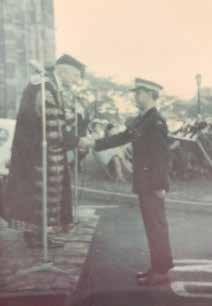
Squadron (RAAF) and, after two years of officer training, graduated as the ‘outstanding cadet’ of my graduating year! First year university was a challenge personally and academically. I had a few friends there from school, but I did not live in a residential college (most didn’t), and I missed the closer and more secure community of high school. In travelling from Chatswood to Redfern, I would often envy those who got off the train at Wynyard and Town Hall stations, who, I thought, would not have to cope with assignments, tutorials and exams! At the end of the year, results were posted and published for all to see – I failed all my first year subjects except history, resulting in the loss of my scholarship. A family friend (the brother of Dame Joan Sutherland) offered me the opportunity to get off the train in the city and work at his company, perhaps to do university studies part-time. A salary would obviously have helped. I sought advice from the Vice-Principal of the Sydney Teachers’ College (located within the University) who simply said to do what my heart urged me to do. I really wanted to teach, and decided to repeat full-time. I didn’t look back after that, but came to realise the sacrifices my mother made to enable me to follow that advice.
First appointment
My first teaching appointment was to Ku-RingGai High School at North Turramurra, one of the early comprehensive and coeducational secondary schools on Sydney’s north shore. It was established with an international focus, its motto being ‘Harmony in Diversity’ and its main day of celebration the 24th October, United Nations Day. I was soon appointed a ‘Year Master’, and I came to see that as much as teaching, I warmed to the wider role of student support and care. In my sixth year there, I was selected to take part in a Rotary (Foundation) Group Study Exchange to the Piedmont (central) area of North Carolina, USA – an opportunity to spend an intensive two months living each week with a different family and visiting a whole range of businesses, government agencies, educational and community institutions. We spoke about Australia at three to five lunches or dinners each week, and visited Washington and New York, including visits to the White House, Congress and to the United Nations. The exchange was my first time overseas; it broadened my horizons, affirmed my commitment to the role of schools and universities in student wellbeing, and made me keen to pursue career goals that would develop that commitment. Not long after returning home, the father of one of my pupils, who was then Deputy Director of Guidance and Special Education in NSW, offered me a place in a new sponsored graduate program at Macquarie University. One year full-time and two years part-time would lead to an MA in Special Education, with a focus on pastoral care in schools.
Special Education and Student Support
As already experienced, ‘doors close and doors open’. I was not sure where my postgraduate study would lead, but following a short appointment at a high school on Sydney’s northern beaches, I was offered the position of Teacher-in-Charge at the Rivendell Adolescent Unit, established on the Thomas Walker Estate at Concord, Sydney. The Unit cared on a weekly residential basis for some 30 high school students experiencing a range of serious mental health conditions, including pre/ psychotic disorders and attempted suicide. It was administered by the Department of Psychiatry of the Royal Prince Alfred Hospital, Sydney, and the NSW Department of Education operated a small
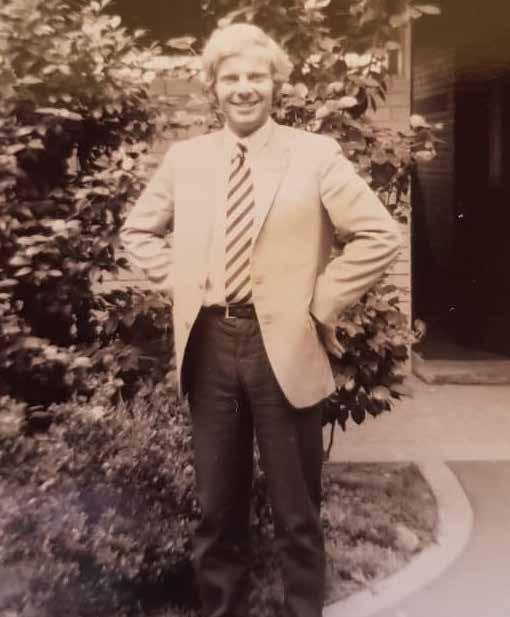
special school within the Unit to enable students to continue their studies as best they could. Rivendell had been set up by and was under the direction of Dr (now Dame) Marie Bashir, later Professor of Psychiatry at Sydney University and the second longest-serving Governor of New South Wales. My close work with her, and the multi-disciplinary team for nearly four years, was an inspiration and a highlight of my career. I was keen to apply my qualifications, and especially my Rivendell experience, back in schools, and I gained an appointment as a (day) House Master and teacher of History and English at Trinity Grammar School, Sydney. A particular opportunity arose when Sydney Grammar School (SGS) advertised its first position of School Counsellor (combined with Careers), to work within the Main School in College Street and at the Preparatory Schools at Edgecliff and St. Ives. Marie Bashir was a referee, and I was appointed by the much loved and rather quirky Headmaster, Alastair Mackerras. I had a fulfilling 12 or so years at SGS, developing the counselling role across the schools, teaching some history, and building the careers program, especially with those in senior years, the majority of whom went on to university. I grew more interested in the role of student support at university, and in the place of university residential colleges. My contacts and vision had also grown for example as President of the Teachers Guild of NSW and also as a member and later Chair of the Council of St Catherine’s School, Waverley (Sydney), the oldest Anglican girls’ school in Australia (established in 1856, the same year as Australia’s first university residential college, St Paul’s at Sydney University).
College life, UNSW and PhD
Particularly through my church involvement and connections (I was a member of the Sydney Anglican Diocesan Synod and a Warden at St. Mark’s Church, Darling Point in Sydney’s Eastern Suburbs), I came to know the Reverend Dr Bruce Kaye, then the third Master of New College at UNSW, and the Reverend Canon Dr Stuart Barton Babbage, who had been the second Master of New College and was a former Anglican Dean of Sydney and Melbourne, Principal of Ridley College (Melbourne), and a leader and teacher in a number of theological schools in the USA. Stuart, who in England had walked with C. S. Lewis, and in Atlanta, Georgia, had joined protests with Martin Luther King Jr., became a mentor and friend and in his final years asked me to deliver the eulogy at his funeral, which I did in 2012. In 1994, Bruce Kaye interviewed me for the vacant position of Dean at New College just prior to his appointment as General Secretary of the Anglican Church of Australia. Here was the move into university student support, and an opportunity to undertake further postgraduate study. I had never imagined doing a PhD, but in discussion about the motivation of the founders of New College (and of Robert Menzies College at Macquarie University) I was encouraged to do so under the supervision of (now Emeritus) Professor John Gascoigne, who later was one of two professors appointed to the Gough Whitlam and Malcolm Fraser Chair of Australian Studies at Harvard for 2016-2017. During my eight years at New College working with mainly undergraduate students, two of whom were to gain Rhodes Scholarships, I completed my PhD on the foundation of denominational colleges in Australia’s secular universities; an overall theme of religion and the university. Oral history included interviews with Melbourne University graduate and former Governor-General, Sir Zelman Cowen, and former Master of Ormond College, Melbourne University Deputy Chancellor, and Governor of Victoria, Dr Davis McCaughey. My doctorate was awarded on 12th April 2002 by the then UNSW Chancellor, Dr John Yu, ‘Australian of the Year’ in 1996. If, when I had failed most of my first year courses at Sydney University, I was told that one day I would gain a PhD and my thesis cited in a history of the University where I had failed (Julia Horne and Geoffrey Sherington, Sydney: The Making of a Public University [The Miegunyah Press, Melbourne 2012]), it would have been like telling me I would fly to the moon! Failure is never final! In 2002 I was asked by the University to be Principal of The Kensington Colleges (TKC), the University’s own Basser, Goldstein and Philip Baxter Colleges. The approach was unexpected and challenging, but, as I was learning, it is always
important to be open to ‘left field’ opportunities when they arise. During my seven years at TKC, I attended annual conferences of the Association of Heads of Australian Universities and Halls Incorporated (AHAUCHI – in 2010 re-badged as University Colleges Australia), and was first elected to its Executive in 2007. I also had the opportunity to visit overseas universities and their colleges/residences, such as UC Berkeley, Harvard, Princeton, the University of Virginia, Georgetown (Washington DC), University of North Carolina (Chapel Hill), Duke University, Universities of London and Nottingham, Cambridge and Oxford, and the National University of Singapore. Knowing the value of our alumni, I became a Governor of the UNSW Alumni Association and its President from 2006 to 2010.
Toad Hall, ANU and University Colleges Australia
A chance passing on of an advertisement for Head of Toad Hall at the Australian National University provided another ‘left field’ opportunity to move from Sydney to Canberra, where my brother had lived for some 20 years, and to work with postgraduate students. Toad Hall had been named in its first year (1974) by its residents who were opposed to it being named after a politician or university leader! With willows along the creek at the rear of the building, the children’s novel The Wind in the Willows came to mind, with Mr Toad of Toad Hall. At that time, the residents were mainly undergraduates beyond first year, with many described as “left-wing radicals and anarchists”!! In a year when ANU students had occupied the Chancelry, the University accepted the name! In more recent decades, the Hall had become a home for some 230 mainly postgraduate students, the majority from a range of countries in the Asia-Pacific region and beyond. The particular challenge in 2010 was to develop further a scholarly community of engagement and care, with a strong sense of unity in its diversity. This has now come to include opportunities, for example, to share research, to listen to and engage with special guests, to be exposed to a range of different cultures and foods, to take part in sporting and social activities and events, and to be part of special support groups such as for Higher Degree Research (HDR) students and for parents. From this, of course, lifetime and global friendships and connections have been made, as well as there being an increasing understanding of respect and safety for self and for one another. Over the past decade, I was asked also to head, in an interim capacity, Ursula Hall, which included a new postgraduate Wing. It was an ‘interim’ role for four years! My involvement with University Colleges Australia increased, becoming VicePresident in 2012 and President in 2014. In 2016 I convened the UCA Conference at ANU, which was combined with ‘Collegiate Way International’, bringing leaders of collegiate communities from universities in the USA, Canada, UK, South Africa, Asia and New Zealand to Canberra. It has been an enriching and fulfilling decade! The role of residences as places of learning as well as
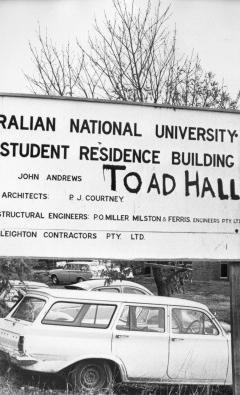

Toad Hall Multi-cultural Festival 2017.
living, was recently recognised in my election to the ANU Academic Board. My professional life has come full circle from the motto of ‘Harmony in Diversity’ at Ku-RingGai High School to ‘Unity in Diversity’ at Toad Hall! I have learned the value of bringing people together; of providing context and a sense of purpose; the worth of ‘second chance’; and of facilitating collaboration and ownership in bringing about positive change. My experience has affirmed that together, in our living and learning, each of us can seek to be an even better person and make a contribution, no matter how big or small, to a better world.
April Monthly Luncheon Review
Jill Walsh
Jill Walsh spoke at the 7th April Monthly Luncheon on the topic ‘Who is the Victorian Rail Advocate and Why?’ By way of background, she explained that The Hon Kim Carr, then Federal Minister for Innovation, Industry, Science and Research, made the decision in 2009 that Australia needed a National Rail Advocate to champion the rail industry nationally. Bruce Griffiths was thence appointed as the Rail Supplier Advocate to set the Australian rail industry on the path to long-term sustainability and to bring together industry, industry associations, unions and government agencies. In 2019 the Victorian state government appointed Jill as the Victorian Rail Advocate. The main objectives of this role are to: • be the interface between industry and government; • support the rail supply chain’s capability and capacity, to help create jobs, skills and training initiatives; • encourage interaction of the university sector with OEMs (original equipment manufacturer/ manufacturing), Tier 1 and 2 suppliers and
SMEs (small to medium sized enterprises); and • chair RIDAC (Rail Industry Development
Advisory Committee), an independent committee which advises the Minister for Public
Transport (currently The Hon Ben Carroll), has 14 committee members and four subcommittees (Supply Chain Strengthening; Skills and
Training; Job Creation). As explained by Jill, the long and winding road to this role commenced 20 years ago with the privatisation of the transport system by the then Premier Jeff Kennett. When nearly two billion dollars ($2B) worth of rail rolling stock orders were announced, there was no provision for local content in the manufacturing of the trains, trams and buses. At that time, Jill was a partner in a small engineering business. She was thus acutely aware of rail being the backbone of Victoria’s engineering sector and obviously concerned about the lack of provisions for local content in the rail builds and thus for jobs and business for local engineering and manufacturing firms – and, of course, for the livelihoods of people in Victoria and Australia. She thus commenced to learn how to lobby! She describes her first call to talk back radio as “terrifying”, but she was angry and passionate about manufacturing and the future of our children and grandchildren without a strong manufacturing sector. Jill then continued persistently. “I got up at 4:00am on many mornings each week to attend networking events, staying on-song with the message local content,” she said, describing herself as knowing nothing about branding “but between my hair colour and wearing a red jacket – I started to build the networks over the years.” Jill describes these networks of paramount importance – “a fantastic asset” – that endure to this day and that help her tremendously in her current role. Jill served on every committee that she could. Eventually, and with changes of government, she was appointed to the Premier’s Jobs and Investment Panel. Serving on this panel for six years, Jill represented SMEs in forums comprising
also the heads of Rio Tinto, Mondelez, Trades Hall, etc. She spoke consistently to the local content struggle in the rail manufacturing sector. Victoria is the only state in Australia committed to local content in the build of our trains, trams and buses. Though some states, like Queensland and Western Australia, are engaging slowly with localised manufacturing, Jill notes that it is “not enough and not quickly enough” for our nation. In 2018, Jill Walsh was announced as the joint winner of the Woman Manufacturer of the Year, a new Victorian Manufacturing Hall of Fame Awards honour, the then Industry and Employment Minister expressing that “This lady’s a force of nature.” As Jill acknowledged in her acceptance speech, she had had a “long commitment to manufacturing, nearly 20 years” staunchly advocating for others in the industry. By that time, she had served on the Premier’s Jobs and Investment Panel, the Southern Melbourne Regional Development Australia (RDA) committee, the Committee for Dandenong and the South East Melbourne Manufacturers Alliance (SEMMA). She had also served as the General Manager of the ARM Group of engineering, metal, rail manufacturing and rollforming companies that worked with many SMEs to form the supply chain for Bombardier, the German-based company that won Victoria’s major train building contracts. Though she initially felt daunted when entering the then-male dominated industry – often being the only woman in the room – she attributes her perseverance, resilience and passion as keys to her success, as well as believing in what she does!! She continues this commitment, with the strong belief – and many years of experience to support this view – that manufacturing and engineering are integral to the future of Victoria and Australia. “We need to retain the ability to build things, whether they are trains or ships or planes,” she said. Government policies that mandate minimum local content levels (currently 50% in Victoria) are key, as is the emphasis on increasing these minimum levels wherever possible. “A commitment to long-term projects gives us work, training, and skills; and government must continue to support us,” Jill added. Two examples of long-term projects in Victoria include: • the Suburban Rail Loop, a 90-kilometre rail ring around Melbourne’s middle suburbs to connect all metropolitan train lines from Cheltenham to
Werribee, via Melbourne Airport.
• Melbourne Airport Rail, via Sunshine Station, then into the Metro Tunnel (which includes the
Parkville Station beside Graduate House) and
Melbourne’s central business district, before continuing on the Cranbourne and Pakenham lines.
There must also be training and skill-development programs at all levels of the supply chain so that local companies can source appropriately skilled staff to design, manufacture and supply the myriad components that are needed when building our rail and public transport system during these long-term projects, she concluded.

Orange and red lines show the proposed routes of the Suburban Rail Loop. Retrieved 22nd April 2021 from https://suburbanrailloop.vic.gov.au/
The orange line shows the proposed route of Melbourne Airport Rail. Retrieved 22nd April 2021 from https://airportrail.vic.gov.au/about/project-overview
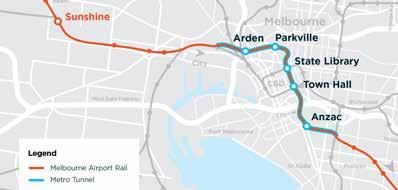
April College Table Review
Lyn Yeowart
Our first College Table for 2021 was on Friday, 16th April and with the incredible Lyn Yeowart leading discussions on ‘How to get published in just 62 years’. It was a joyful and poignant @GradHouse experience with a lovely group of people sitting around the long luncheon table dining, conversing and sharing. Everyone enjoyed themselves, the meal was delicious, and it was indeed a great honour to have this world-class author sitting amongst us talking candidly and openly about the writing and publishing of her best-seller, The Silent Listener. Lyn started the discussion by informing us that she finished writing this novel in January of 2019, and sent it to a literary agent, who wrote back saying in her email, amongst other memorable phrases, “I want to sign you up”. A few weeks later, the agent presented Lyn’s manuscript to Penguin who offered her a two-book deal and royalties in advance. They started the editing process – which Lyn described as “wonderful” – and when the manuscript was thoroughly edited and proofread, her agent sold it to a French publisher, a Russian publisher, and a UK publisher, and is currently talking to publishers in other countries, and negotiating a contract for the options for screen adaptation rights!! About two weeks before the book was published by Penguin, it went into reprint, based on sales into bookshops. In the first week that it came
out, it rocketed to the No 1 position on Readings best seller list, and a few weeks later it was sitting at number 21 on Amazon Australia’s Top 100 Hot New Releases and Number 37 on their Top 100 Movers and Shakers list. The book has had favourable reviews in The Age, The Sydney Morning Herald, The Herald-Sun, The Big Issue, several regional and other interstate newspapers, some women’s magazines, Readings newspaper, Books + Publishing (a publishing trade magazine), the Shameless Podcast (which has nearly 148,000 followers, mostly young women), and numerous radio stations. In the months following this College Table, Lyn is going to be very busy. She is appearing at six writers’ or arts festivals and will have notched up about twice that many interviews on podcasts, radio programs and Zoom panels. And along the way, there’s been a second re-print. What a dream run! “I’m an overnight success!” Lyn exclaims. Except, of course, she is not. Lyn then reflected on the long journey to that success. She was 60 when she signed the contract with her agent and the subsequent contract with Penguin. Three months before her book finally hit the shelves, she turned 62. She had wanted to be a writer all her life, so, as she put the question to herself, “what on earth took me so long?” Sylvia Plath once wrote “The worst enemy to creativity is self-doubt”, and that is what Lyn described as having crippled her … for decades. She grew up in a house devoid of books – except the Bible and What Bird Is That? (a reference book full of pictures of Australian birds accompanied by some short descriptions). Her parents basically did not read, never read bedtime stories to their children and never once took them to a library. Lyn explained that she literally did not step into a bookshop (apart from the one at university) until she was 21. Of course, her tiny primary school in regional Victoria had a few shelves of books that she could borrow from, and her high school had a classroom that had been converted to a library. As a child, and particularly as a teenager, Lyn found herself falling in love with books and reading and anything to do with books and reading, including grammar, punctuation, metawriting, stationery, desks, fonts, paper, printing, languages, mathematical and musical annotations, hieroglyphics and so on and so on; adding that she taught herself how to read music when she was only 11 years old. She described having placed authors on a distant and very high pedestal. As she explained, “They were gods I admired from afar who were so superior to me that it was incomprehensible that I would one day join their ranks.” But it was not just the lack of books in her home that left her with the self-doubt that Sylvia Plath mentions. Her father ruled their home with fear. Her brothers and Lyn were afraid of hell, but were a lot more scared of their father. The setting of The Silent Listener is the home and farm Lyn grew up on, and in the book, she describes what it was like living in that house. However, Lyn was quick to clarify that she packaged the novel as a psychological thriller, weaving true events with those that are fictional: a missing 9-year-old girl, some revenge on the part of two sisters, a couple of suspicious deaths, and a cop and a local GP who try to unravel a web of lies and secrets to discover the truth. There is also a twist at the end that “no one has yet said they saw coming,” said Lyn. With our appetites thus whetted to buy and read the book, Lyn returned to the narrative (factual) of her publishing journey. By the time she left home to go to university at the age of 17, her self-esteem was, as she described, “the size of the proverbial mustard seed”. This was despite having won a series of scholarships through high school and another one that financed her university studies and living expenses for four years, along with some minor sporting successes; not to mention her having been accepted into ANU to study Law on a scheme that selected students based on consistently outstanding academic results … and before she had even sat her Year 12 (VCE) exams. Unfortunately, Lyn’s parents did not allow her to move interstate, or to become a lawyer. Both ideas were completely beyond their understanding – and therefore beyond her own. She thus headed off to Melbourne to become a teacher.
Lyn outlined that, on the surface, her main problem was that her parents did not value or encourage her academic successes; but below the surface, the real problem was that they were too intent on Lyn being well-behaved and polite. She was never to talk back – to them, to other adults and to anyone in authority. She and her brothers lived under a thousand rules. If any were broken, they were in real danger of verbal, psychological and physical abuse that went beyond the routine ever-present, ever-ominous verbal and psychological abuse. The constant, humming fear and the need to avoid angering her parents, particularly her father, meant, of course, that Lyn did not learn to value herself. She never learnt to speak up for herself, or that her opinion was valid and valuable. She never learnt that her feelings should have been respected and treasured – indeed, that she had the right to be respected. With the constant message that others were to be put first, and she was to be humble, quiet, patient, well-behaved and grateful for what she had, she thus also never learnt to make decisions that were right for her. Lyn describes her constant wonderment at how and why other people were happy, confident, loud, headstrong, creative, determined and focused. In contrast, she felt like she was a cork bobbing on an ocean, waiting patiently, as she had been told to do all her life, to be led, directed to where she should go. Intellectually, Lyn knew she had to forge her own life, but emotionally, she felt incapable of doing so. Consequently, she drifted, and to extend the metaphor, she reflected that “my self-esteem was like an anchor, holding me down, not letting me go very far from where I’d been put”. So, she taught – at Horsham High School and at Huntingdale Tech School – and then became a Technical Writer at Wordware Pty Ltd before setting up her own consultancy (now operating as Lynx Writing) providing writing and editing services. Near 20 years later, she decided to give serious attention to her professional development as a creative writer. The mention of this intent generated much reflection and discussion around the table of the importance of this step – just as you would train to be a nurse or a doctor, and just as you would work several hours at work as that trained professional, so too for a creative writing position should you gain appropriate qualifications, put in work hours and undertake continuous professional development. Lyn thus completed both a Post-Graduate Diploma in Creative Writing (2008) and a Master of Creative Writing (2011) at The University of Melbourne. It was a subsequent Novel-Writing Masterclass that prompted focus on her novel. Lyn thence took blocks of time off work (e.g., a month or a fortnight at a time) and worked hard for four years, drafting, re-drafting, re-structuring and polishing her work – her ‘overnight success’ – and joining, as was agreed by all at the College Table, the ‘goddess ranks’. * * *
The Silent Listener is published by Penguin Random House (Australia and New Zealand) and available in paperback, e-book and audio from all independent booksellers such as Readings, the Leaf Bookshop and Thesaurus Books, chain bookstores such as QBD and Dymocks, department stores such as Big W, and from online stores such as Booktopia and Amazon.
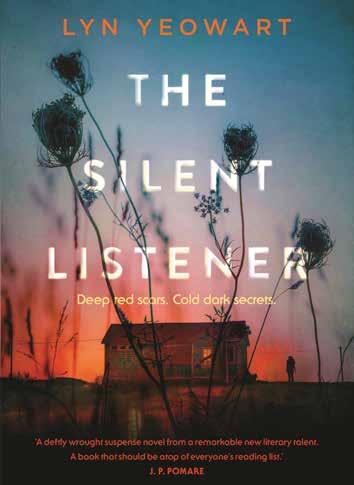
A Pilgrim’s Questions
1993
And did you know this pain? Can I believe you struggled with despair, with fear and loneliness and doubt? Did sandalled feet in desert wastes track back and round with pause and start? Did questions come that tore you deep, half answers that emerged for you to clutch, only to trick and mock and lead no further on? Did hope play games with you, appearing from behind a rock, only to flit away when you made gestures of hospitality?
I need no optimists to point to better days, their forced and false assurance makes me sick. Enough for me to know you came this way and that you walk here now with me and say “I know.”
